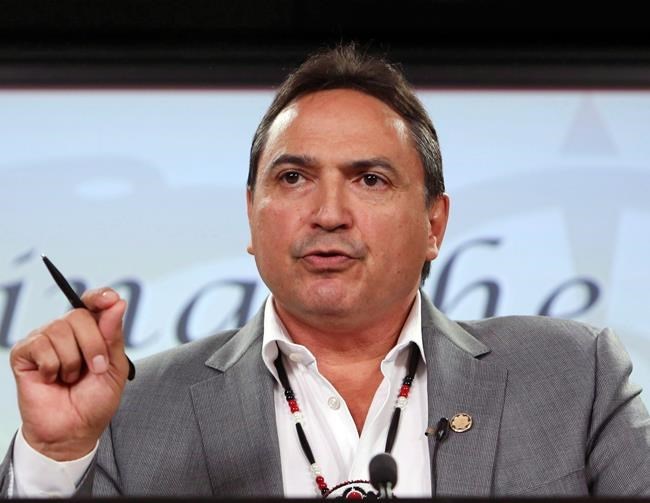THUNDER BAY - The interpretation of a treaty written more than 160 years ago is at the centre of hearing in an Ontario court room.
First Nations of the Robinson-Huron Treaty area first filed a lawsuit against the governments of Canada and Ontario for failing to adhere to the terms of the 1850 treaty.
The hearings began on Monday in a Thunder Bay Superior Courtroom, with Chief Dean Sayers of the Batchewana First Nation, Chief Duke Peltier of Wikwemikong Unceded Reserve, and Perry Bellegarde, national Chief of the Assembly of First Nations attending.
At the heart of the lawsuit is annuity payments, which First Nation leaders in the treaty area say have not been honoured. The treaty promised an initial payment of $2 per individual, which would be increased based on the wealth generated by the land and resources.
“The last increase that they got here was in 1874 up to $4 and it has sat silent ever since then,” Bellegarde said. “The chiefs from the treaty territory have been working together to push the crown to live by and abide by that treaty arrangement.”
The Robinson-Huron Treaty covers more than 37,500 square miles in Northeastern Ontario.
According to Bellegarde, the government has not lived by or honoured the spirit or intent of the treaty and because it is not willing to engage, First Nation leaders felt compelled to take the matter to the courts.
“Everyone agrees that it’s better to negotiate than to litigate,” he said. “But this is the first step of the process.”
The case could set precedent for how treaties are interpreted and implemented across Canada, Bellegarde said, because many treaties include points about annuity payments to treaty peoples.
“There is a spirit and intent and understanding that as treaty people we didn’t give up anything,” he said. “We didn’t give up the land, we didn’t give up the resources, but we agreed to share the land and resource wealth of this great country. And there are principals of peaceful coexistence and mutual respect between our people to mutually benefit and we see that principal not being respected.”
With annuity payments meant to increase based on the wealth generated by the land, Bellegarde said Canada is a rich country with an economy that has earned billions of dollars since first contact with Indigenous peoples.
“From the Indigenous person’s perspective, we are to mutually share from the wealth of this country, but unfortunately in 2017 we still don’t see that,” Bellegarde said. “Because what you see amongst our people is poverty, so that is what we are trying to address through this process as well.”
The hearing in Thunder Bay is the first of several that will take place between Sept. 25, 2017 and Mar. 29, 2018 and will be held in Manitoulin Island, Garden River First Nation, and Sudbury.
And while the hearings are taking place in an Ontario courtroom, Bellegarde said he hopes the interpretation of the treaty will not rely only on a legal interpretation.
“We would hope that the judge and the lawyers enlarge their scope of mind and look at it from the spirit and intent,” he said. “Ours is an oral history and ours is a language that is not English or French, so lots could be misinterpreted, so we hope that can be clarified through these proceedings as well.”
